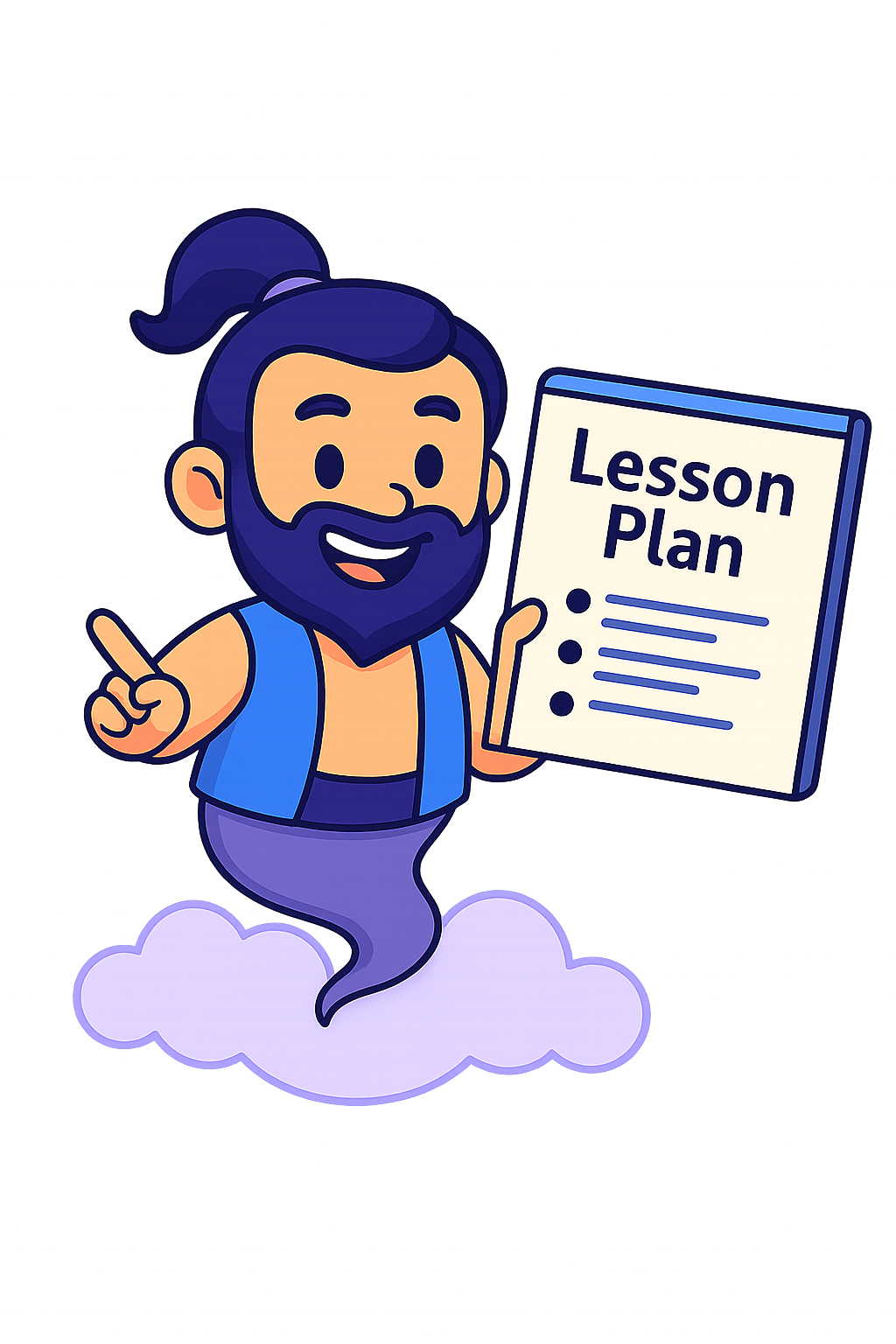 Recognizing and Producing Rhyming Words
Recognizing and Producing Rhyming Words
Objective: By the end of this 45-minute lesson, the student will be able to identify and produce words that rhyme, demonstrating understanding of word sounds as outlined in standard 1.RF.2c.
Learning Objectives
- Understand what rhyming words are and why they rhyme.
- Identify pairs of words that rhyme from a group of words.
- Create their own rhyming words using familiar vocabulary.
Materials Needed
- Picture cards with simple words
- Rhyming word worksheets
- Crayons or colored pencils
- Whiteboard and marker or paper and pencil
Key Vocabulary
- Rhyme
- Words that have the same ending sound, like cat and hat.
- Sound
- The noise that letters or words make when spoken.
- Ending sound
- The last sounds you hear in a word.
Detailed Activities
Introduction to Rhyming Words
- Explain what rhyming words are using simple examples like cat and hat.
- Say two words aloud and ask the student if they sound the same at the end.
- Show picture cards in pairs and ask the student to tell if the words rhyme.
Rhyming Word Matching Game
- Lay out picture cards or word cards on a table.
- Ask the student to find pairs of words that rhyme and group them together.
- Discuss each pair and highlight the rhyming ending sounds.
Create Your Own Rhymes
- Provide a worksheet with simple words and blank spaces for rhyming words.
- Ask the student to think of words that rhyme with the given word and write or draw them.
- Review the rhyming words together and celebrate their effort.
Parent & Instructor Notes
- Encourage your child to listen carefully to the ending sounds of words.
- Use everyday conversations to point out rhyming words, such as during reading time or while playing.
- Be patient and offer lots of praise to build confidence and interest in language skills.
Assessment Questions
- Can you tell me two words that rhyme?
- Do these two words rhyme: ‘ball’ and ‘cat’?
- Can you find a word that rhymes with ‘dog’?
Extension Ideas
- Read rhyming books like ‘Green Eggs and Ham’ by Dr. Seuss together and point out rhymes.
- Create a rhyming word wall with new rhymes your child discovers each week.
- Play rhyming games online or use apps designed for phonics and rhyming practice.
Frequently Asked Questions
Try emphasizing the ending sounds when you say the words and use visual aids like pictures to make the sounds clearer.
Short, daily practice sessions of 5–10 minutes are best to keep your child engaged without feeling overwhelmed.
Teacher’s Guide
Common Misconceptions:
- Children may confuse rhyming with words that look similar but do not sound alike.
- Some children might focus only on the first sound rather than the ending sound of the words.
- Students may think words rhyme if they share the same number of syllables.
Scaffolding Ideas:
For Struggling Students:
- Use fewer word pairs with very clear and simple rhymes.
- Provide more visual and auditory cues, such as clapping syllables or using rhyming songs.
- Offer one-on-one guided practice focusing on listening skills.
For Advanced Students:
- Challenge them to come up with multiple rhyming words for one word.
- Introduce near rhymes or words that almost rhyme to expand understanding.
- Encourage writing simple rhyming sentences or short poems.
Pacing Recommendations:
- Start with a brief introduction (10 minutes) to explain and model rhyming words.
- Spend about 15 minutes on the matching game to provide hands-on practice.
- Use the last 20 minutes for creating rhymes and reviewing to reinforce learning.
Standards
- 1.RF.2c — Recognize and produce rhyming words.
Printable Worksheet
Plan Your Own Lesson
Looking for a custom lesson plan? Try our Lesson Planning Generator — create standards-based plans for any topic, instantly!
Common Core Aligned Lesson Plans
Looking for another common core lesson? See all of the lesson plans here.
More Free Lesson Plans
We’re adding more every week! Check back soon or explore all our lesson plans here.

 Recognizing and Producing Rhyming Words
Recognizing and Producing Rhyming Words
Leave a Reply